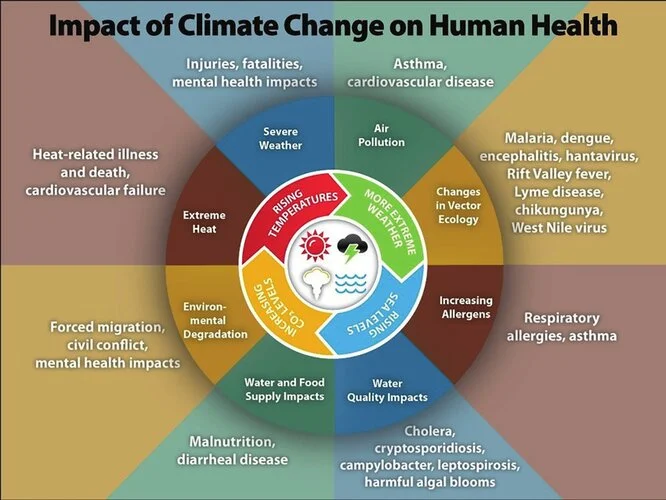Alliance for Transformative Action on Climate and Health (ATACH), 2025

Grenada, like many Caribbean small island developing states (SIDS), faces intensifying climate impacts with limited resources yet enduring resilience. Rising temperatures—projected to reach 2.9°C by 2100 under high-emission scenarios—are exacerbating vulnerabilities and threatening health infrastructure and disease patterns. Sea level rise poses a major risk to coastal zones and tourism (73% of structures are coastline-based), with a 0.5-meter rise expected to erase up to 60% of beaches.
The nation has endured major climate shocks: Hurricanes Ivan (2004), Emily (2005), and most recently, Hurricane Beryl – 2024 causing over $950 million in damages (Ivan & Emily) and impairing 69% of health facilities. Grenada also grapples with alternating droughts, heat waves and floods, affecting sanitation, agriculture, solid waste and water systems. Health repercussions include:
Direct impacts: trauma, heat stress, post-disaster mental health strain.
Indirect effects:
- Vector-borne diseases (e.g. dengue, Zika, chikungunya);
- Waterborne illnesses (e.g. leptospirosis, gastroenteritis);
- Respiratory ailments (e.g. from Saharan dust);
- Food insecurity;
- Stress-related cardiovascular disease.



